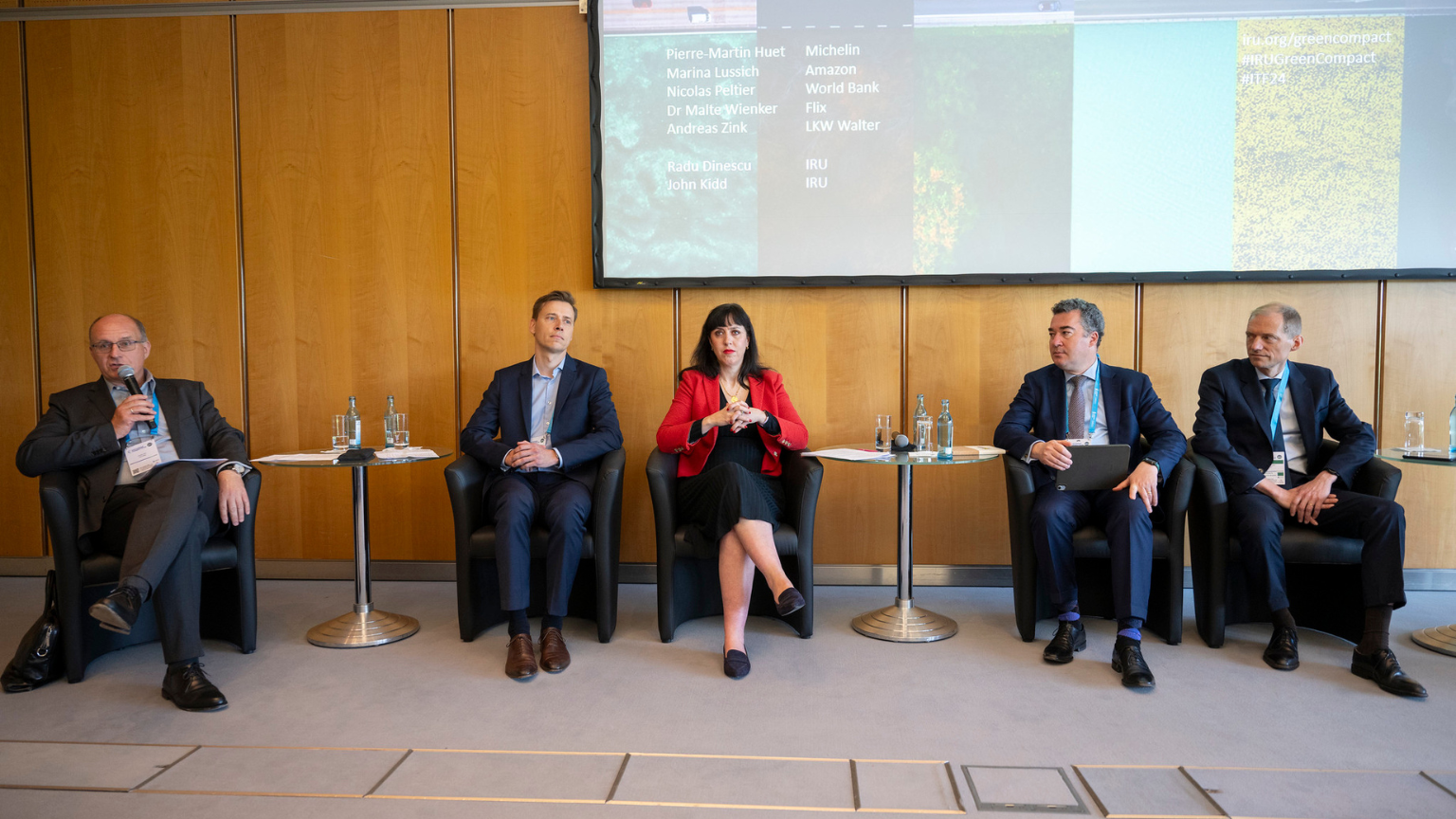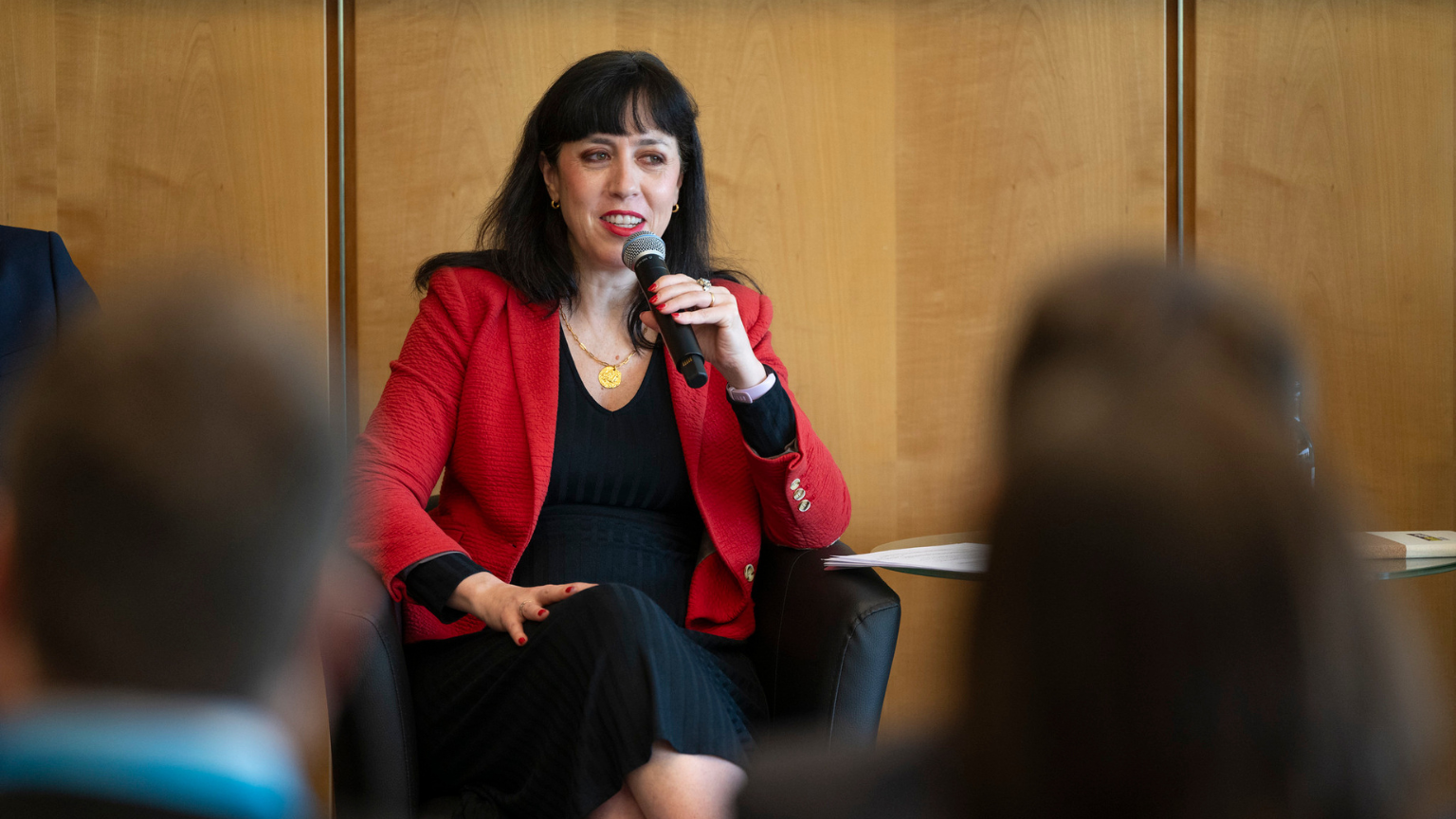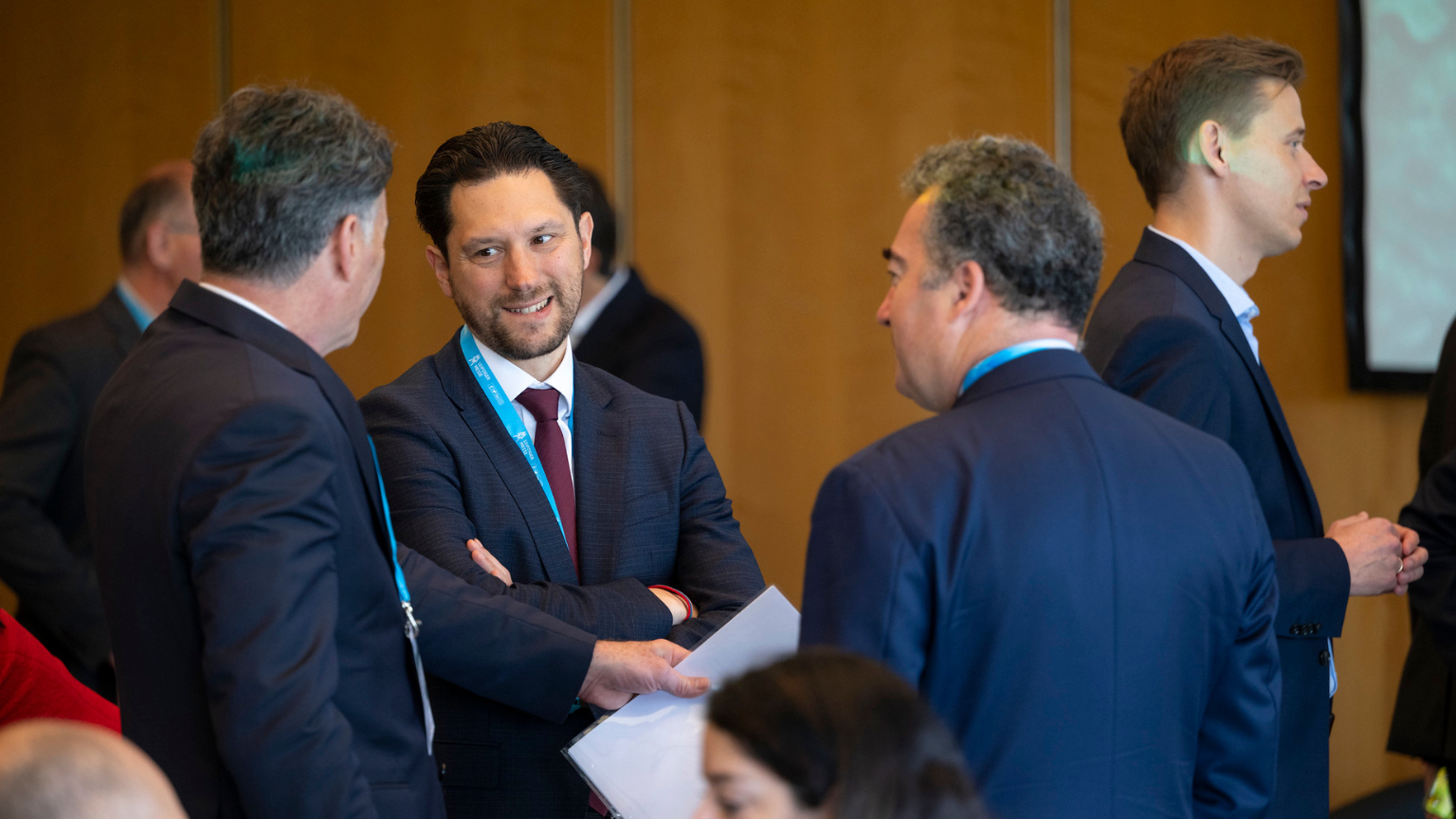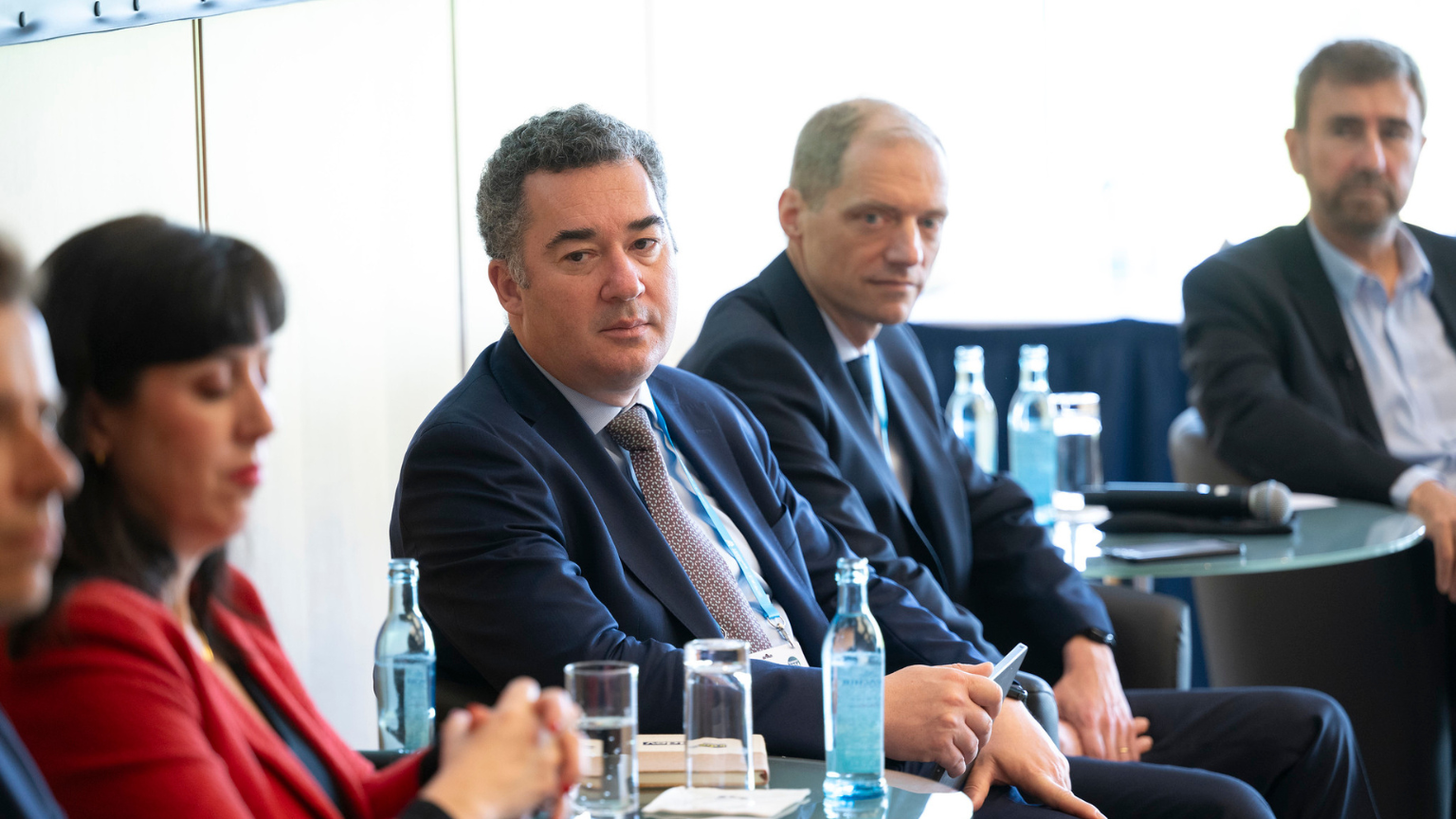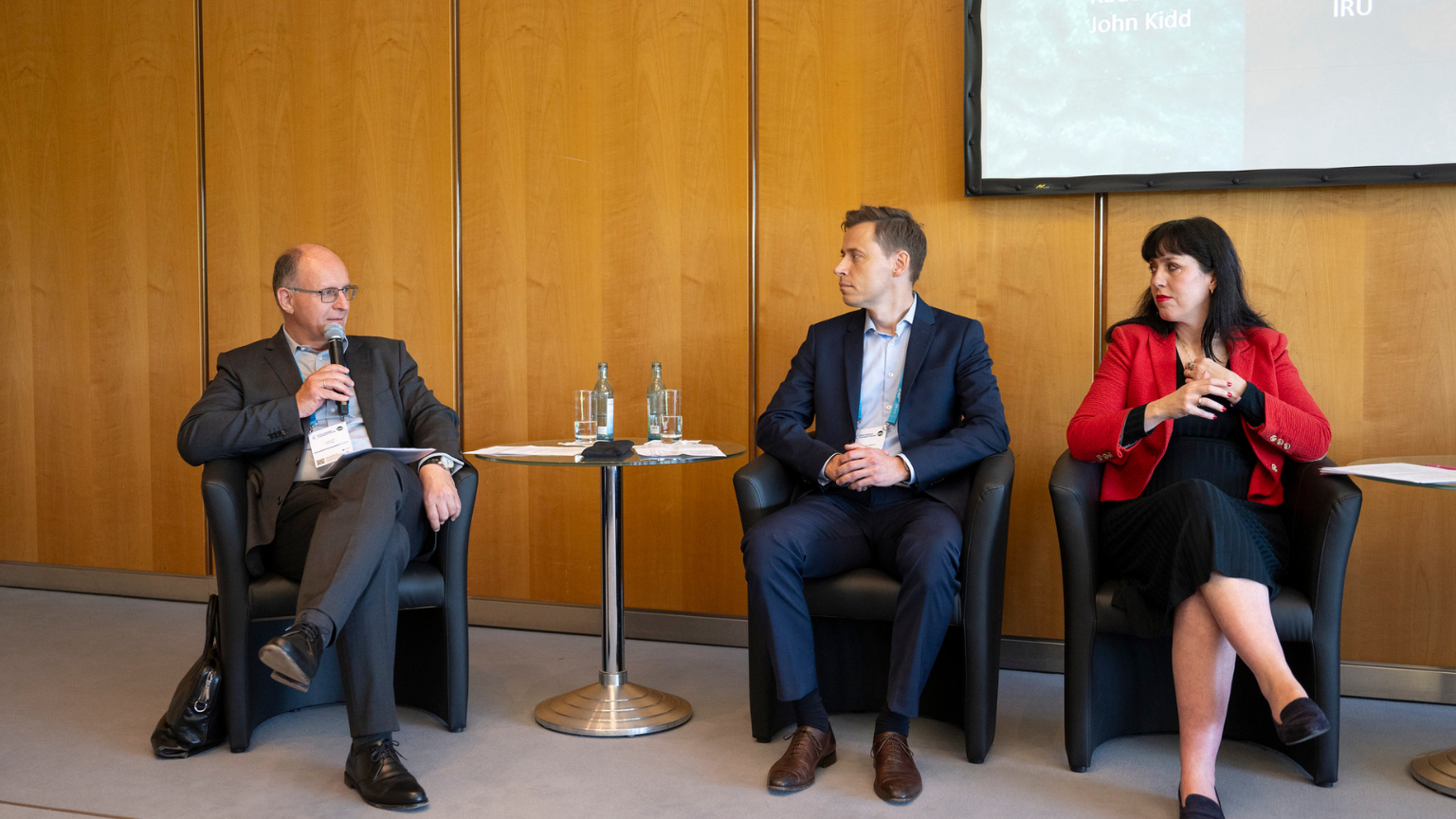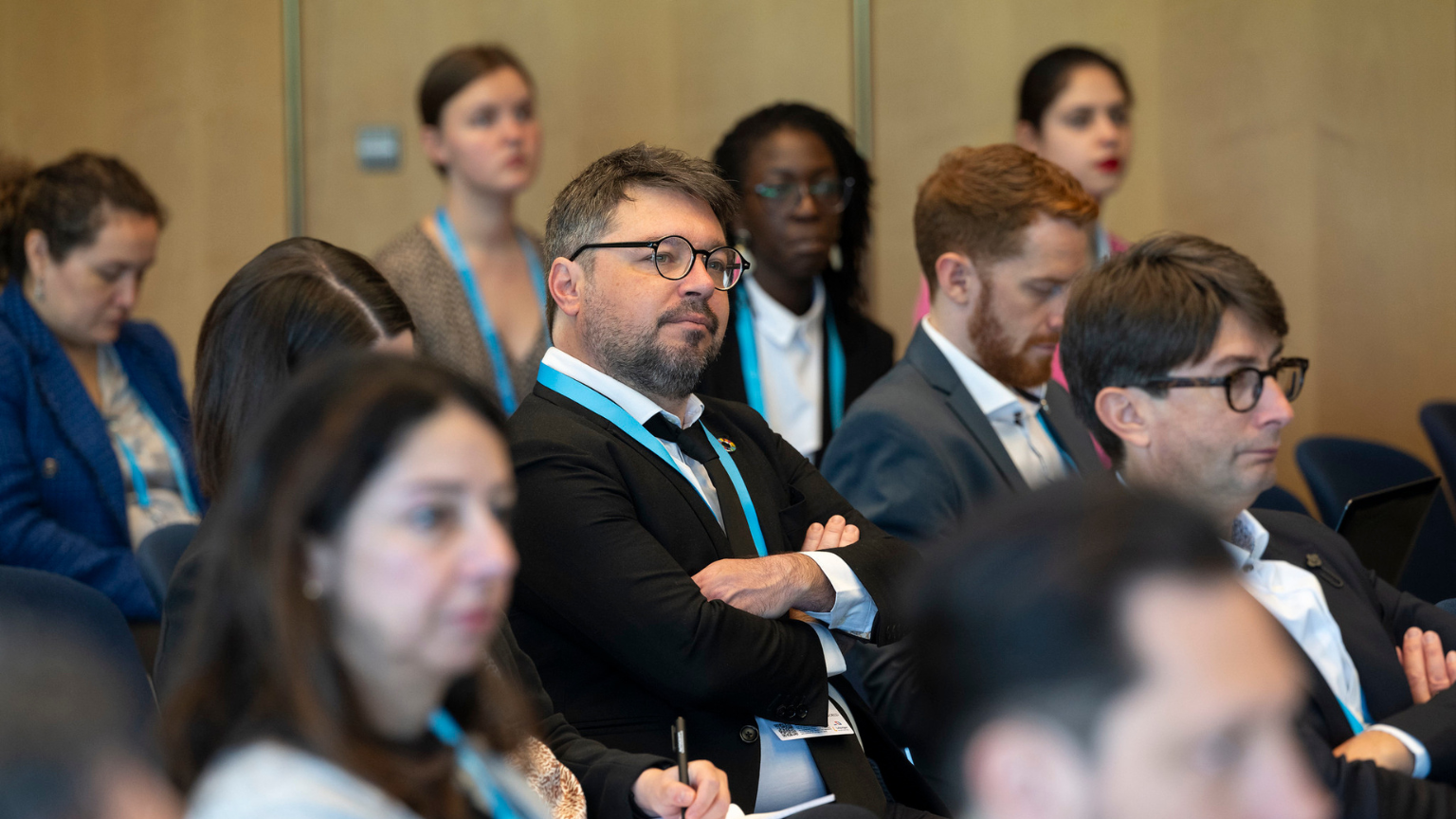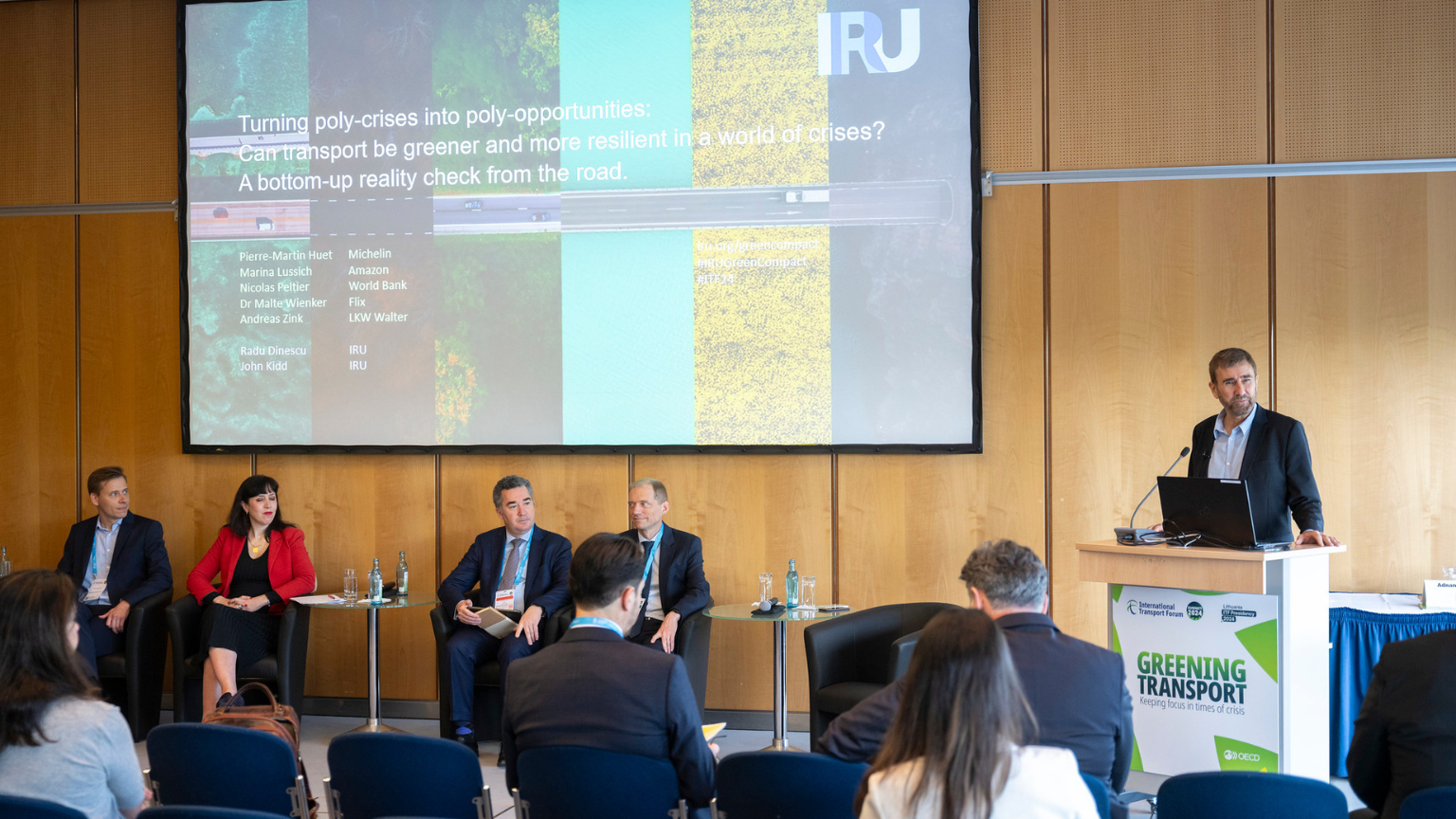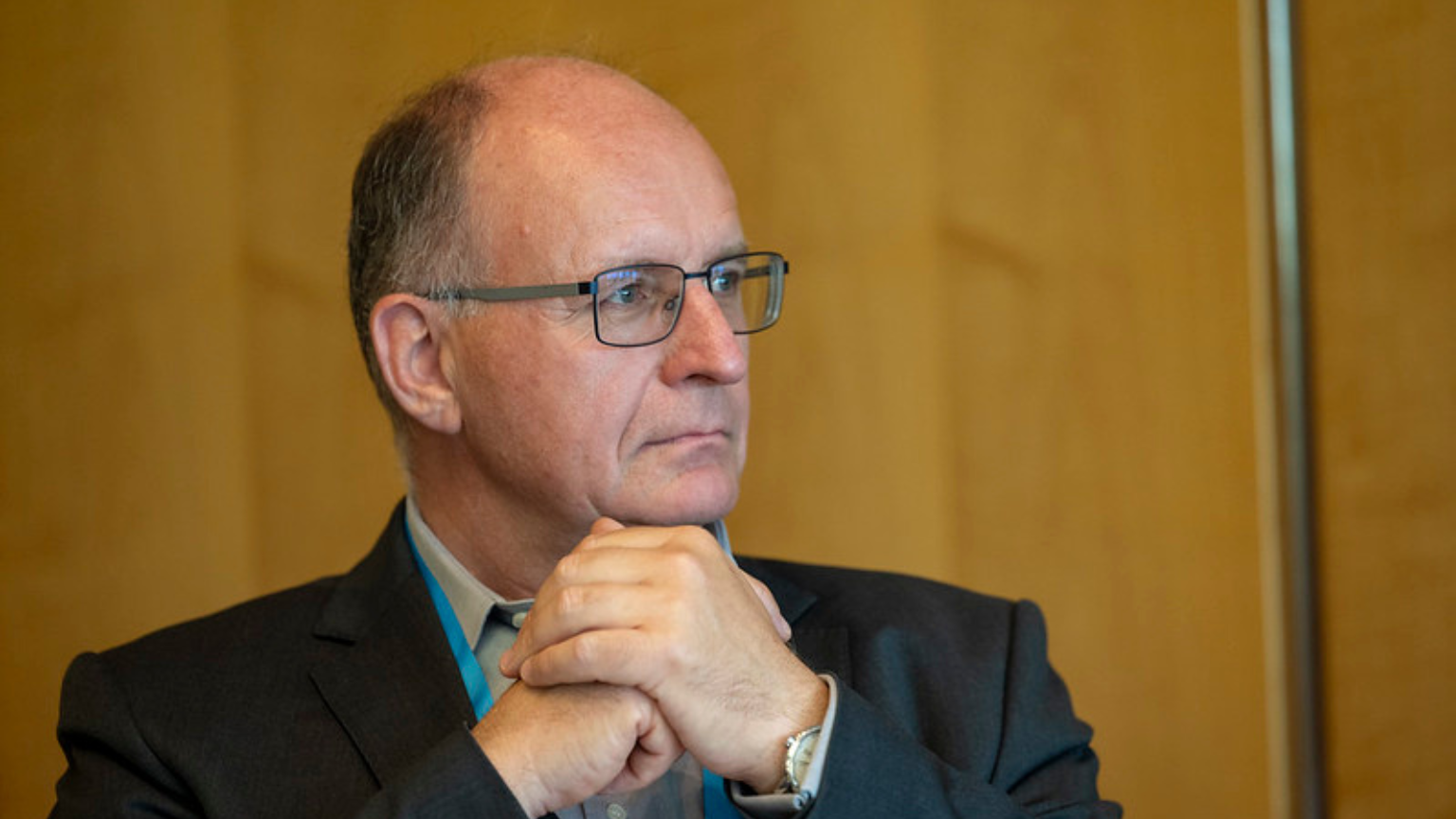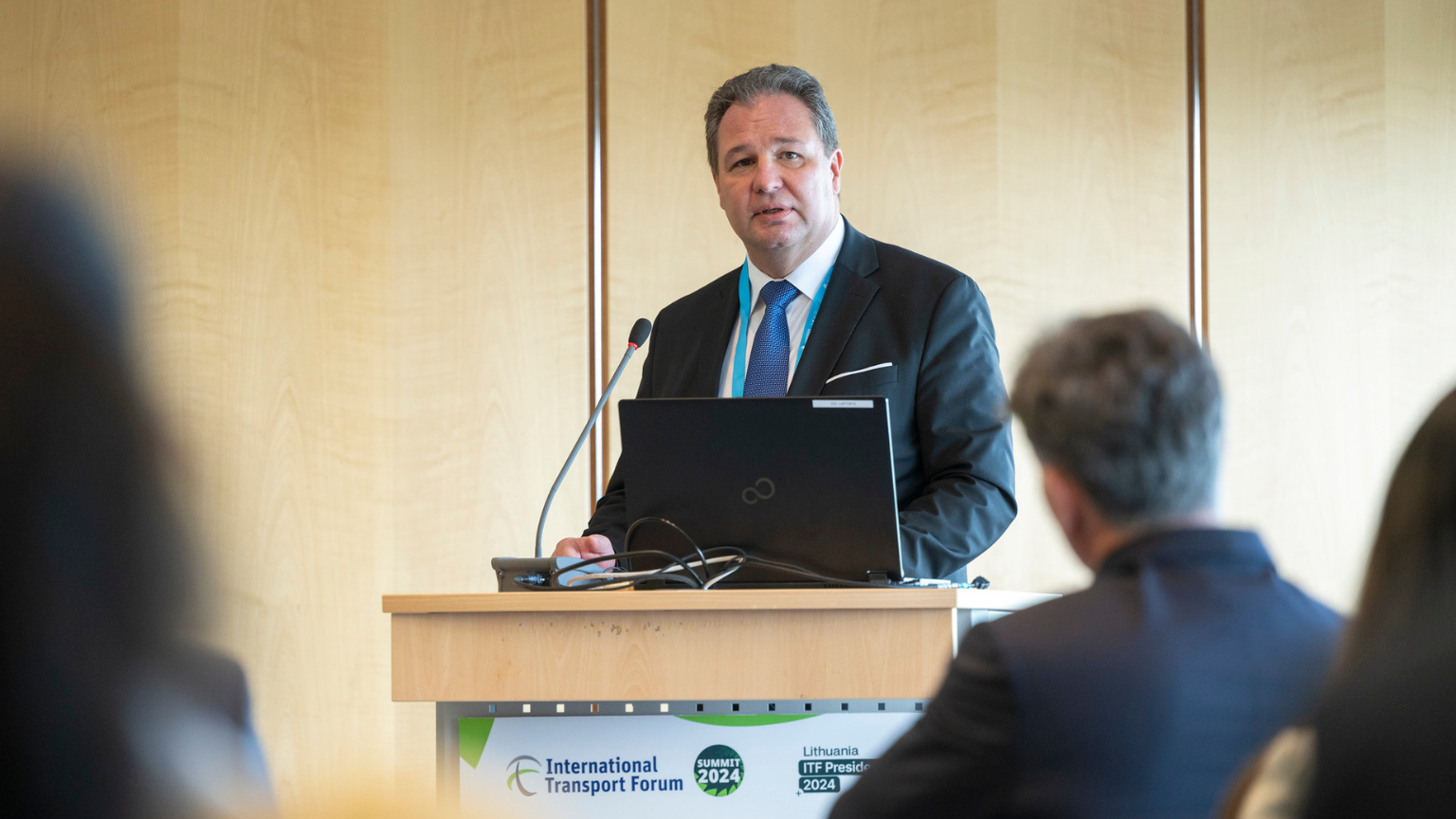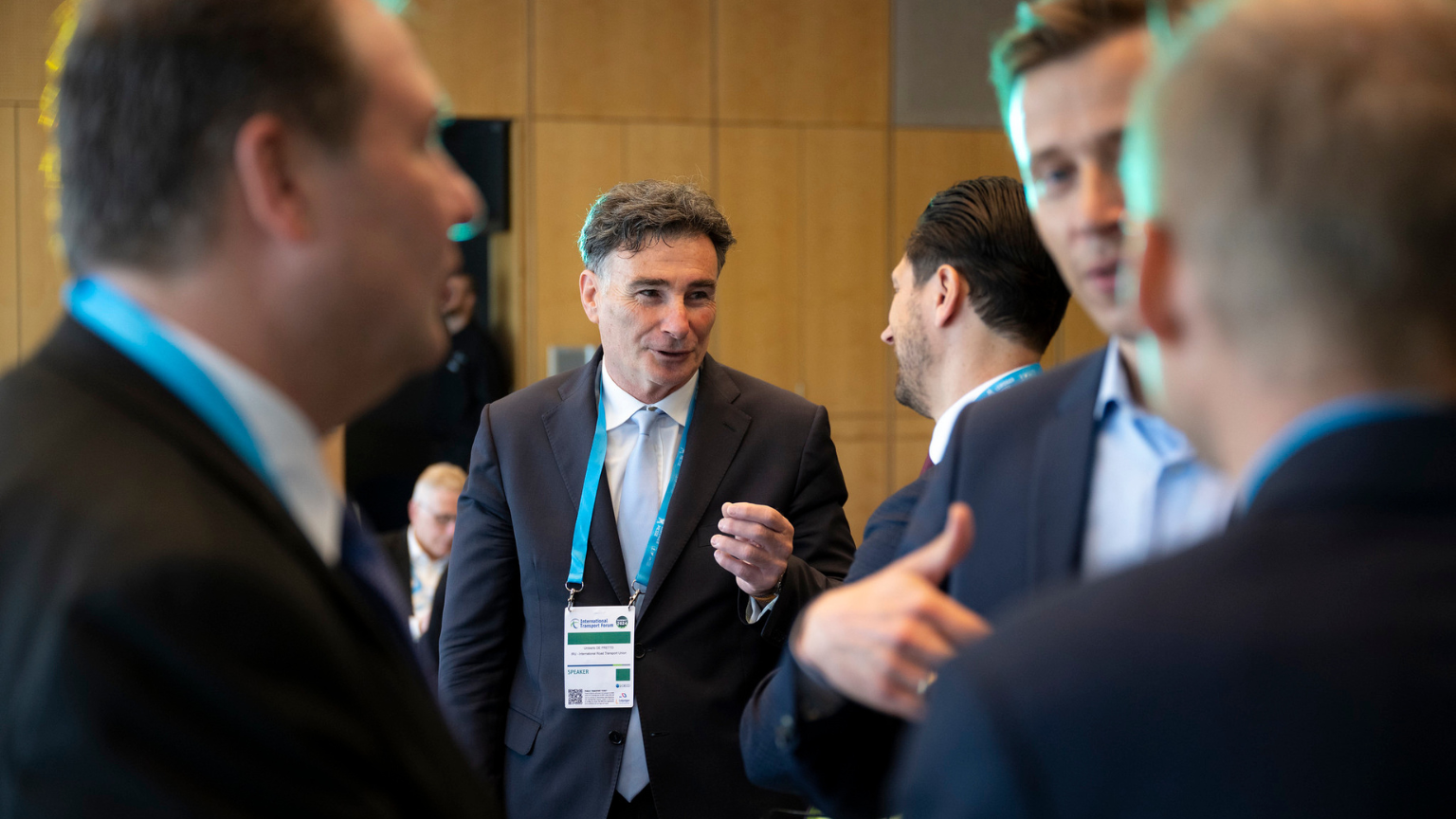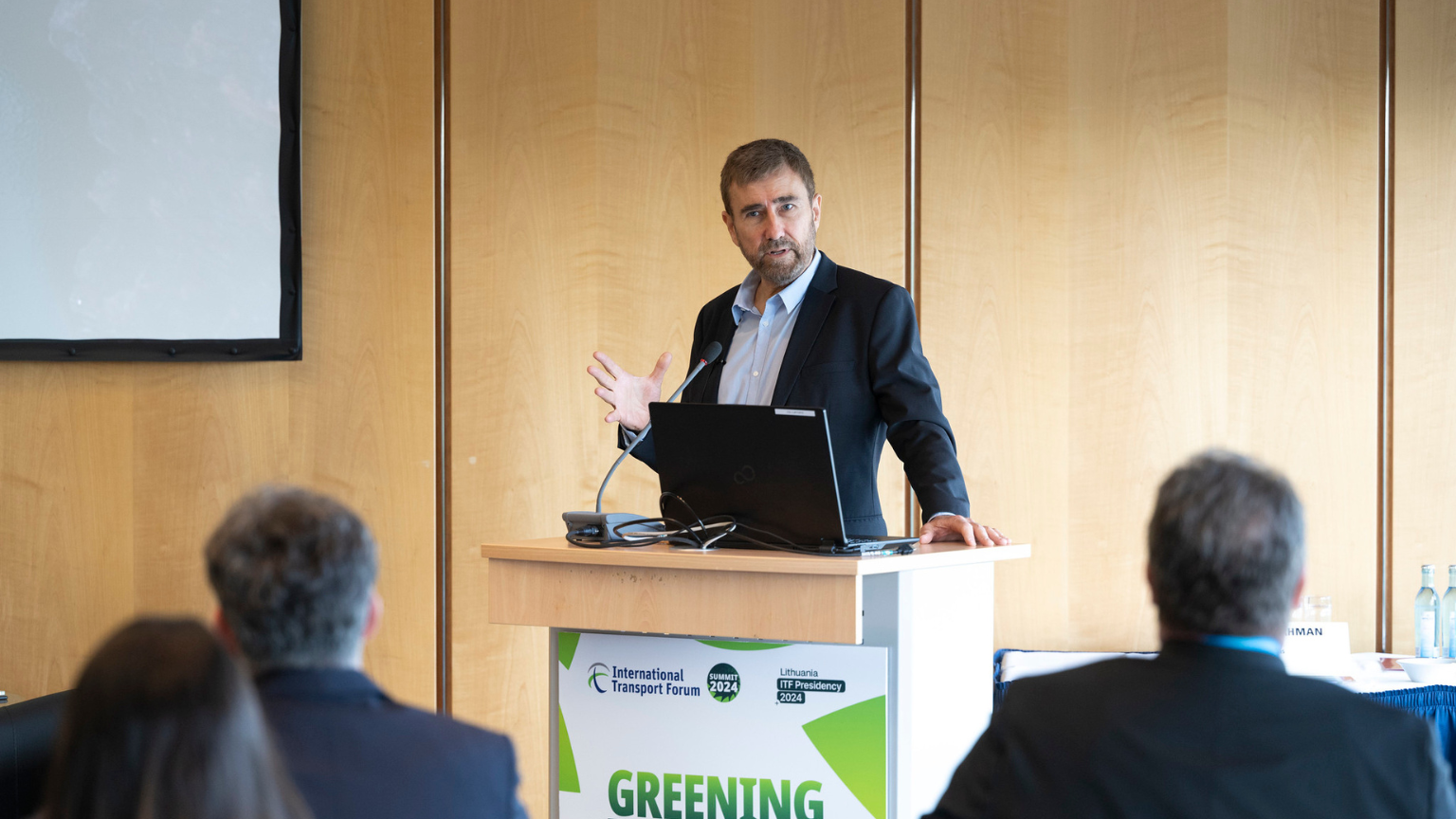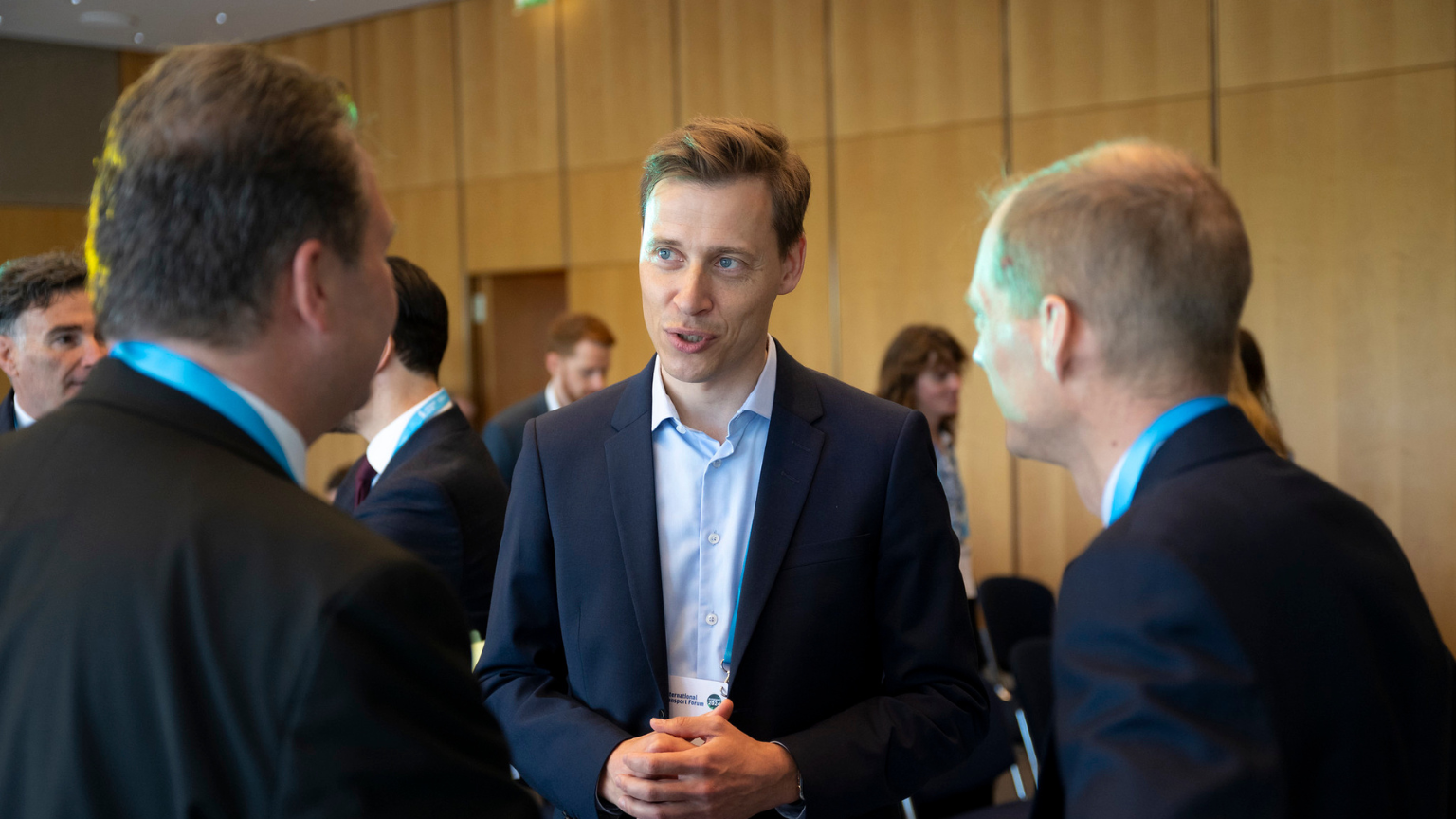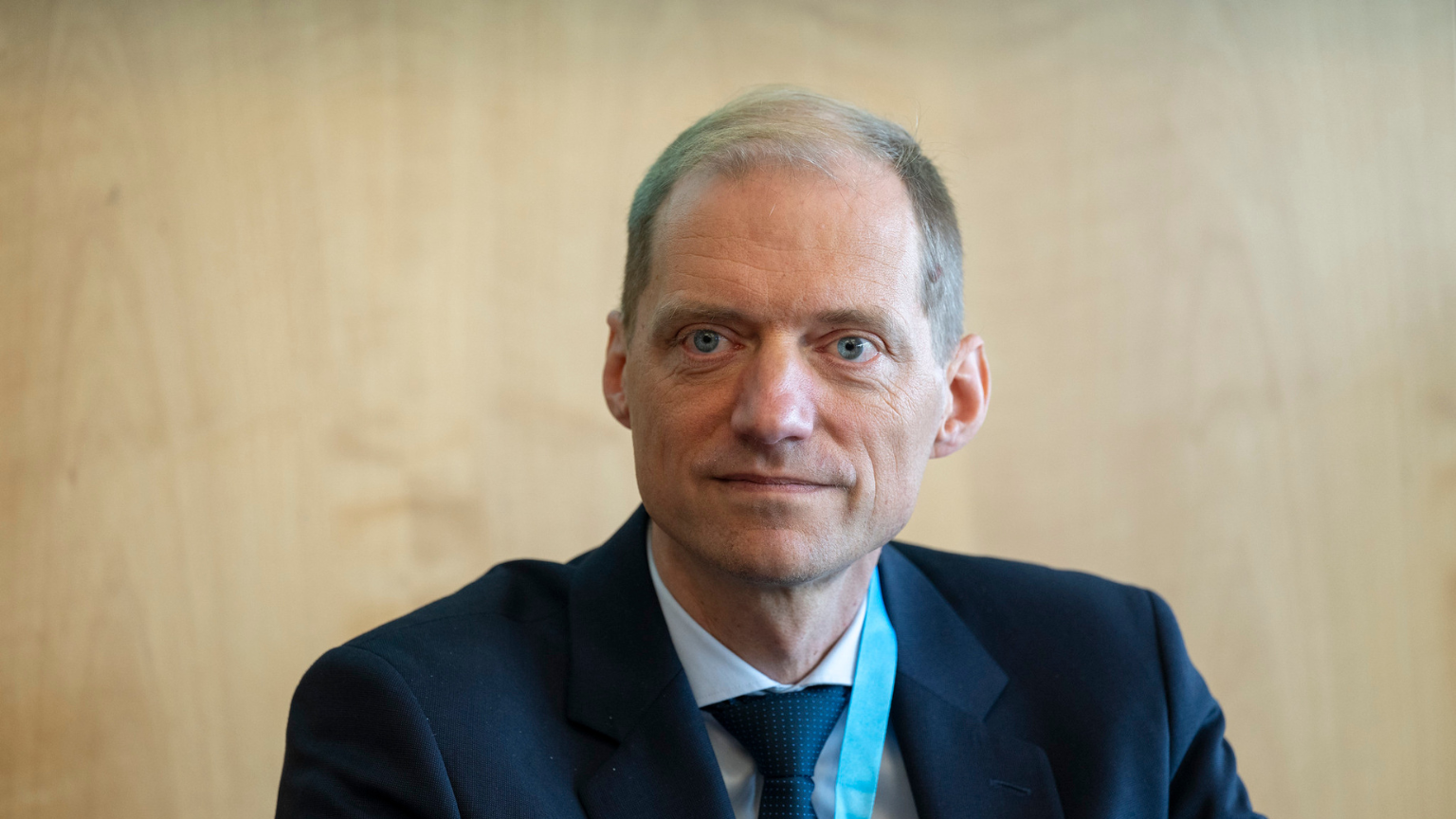“How can we be greener and more resilient?” was the main question put to industry expert panellists – from Amazon, Flixbus, LKW Walter, Michelin and the World Bank – at IRU’s ITF Summit event today.
Transport is the lifeblood of economies and communities. The global commercial road transport sector has committed to become carbon neutral by 2050. But it has an enormous job ahead.
This becomes even more challenging in a world of global health, energy and climate crises, wars and natural disasters, where resilient transport networks are key to surviving and thriving.
How do we balance the two?
IRU’s event, titled “Turning poly-crises into poly-opportunities: Can transport be greener and more resilient in a world of crises? A bottom-up reality check from the road”, tackled this growing challenge at the annual Summit of the International Transport Forum (ITF) in Leipzig, Germany.
The interactive panel debate featured Andreas Zink (Director, LKW Walter), Dr Malte Wienker (Senior Director, Global Public Affairs, FlixBus, IRU member), Marina Lussich (Principal Program Manager, Sustainability, Policy & Partnerships, Amazon, IRU member), Nicolas Peltier (Global Director, Transport, World Bank), and Pierre-Martin Huet (Senior Vice President, Sustainability & Impact, Michelin, IRU member).
IRU President Radu Dinescu, who gave the opening remarks, said, “We need to reinforce our adaptability and resilience, especially in uncertain times as we face now in many parts of the world. We need to learn from each other and work together to make all transport greener and more resilient.”
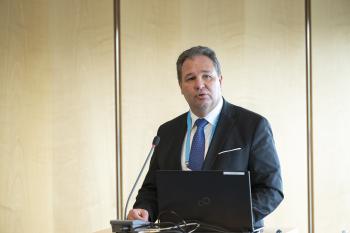
Radu Dinescu outlined IRU’s Green Compact, the industry’s collective commitment and roadmap to carbon neutrality by 2050, and referenced IRU’s latest decarbonisation research on the key role of efficiency measures alongside alternative fuels.
The panellists were in a consensus that green and resilient transport do not exist in isolation. Along with safety, they are equally important and indeed strengthen each other in long-term planning to create better transport networks.
However, timing, delivery and client needs will trump CO2 emission considerations in ongoing transport network operations. Efficiency and resilience should be built into transport planning from the ground up to ensure that transport networks are resilient. Therefore, when changes happen, the right low- or zero-carbon solution is ready and available to be used.
In a lively discussion on what transport companies need from governments, there was a strong consensus on the need for clear long-term targets and infrastructure planning. But it is then up to transport companies and the market to deliver. For that, they need a clear and simple legislative framework that leaves strategic decisions on technology, business models and modal choice to the companies themselves in a fair market.
IRU Secretary General Umberto de Pretto closed the session by reinforcing what the sector needs, outlining three words that summed up the panel discussion and the road ahead to carbon neutrality, “Efficiency, efficiency and efficiency!”
The roadmap to delivering the many solutions necessary to decarbonise commercial road transport in a pragmatic and cost-effective way – while keeping transport networks moving – is outlined in IRU’s Green Compact.

